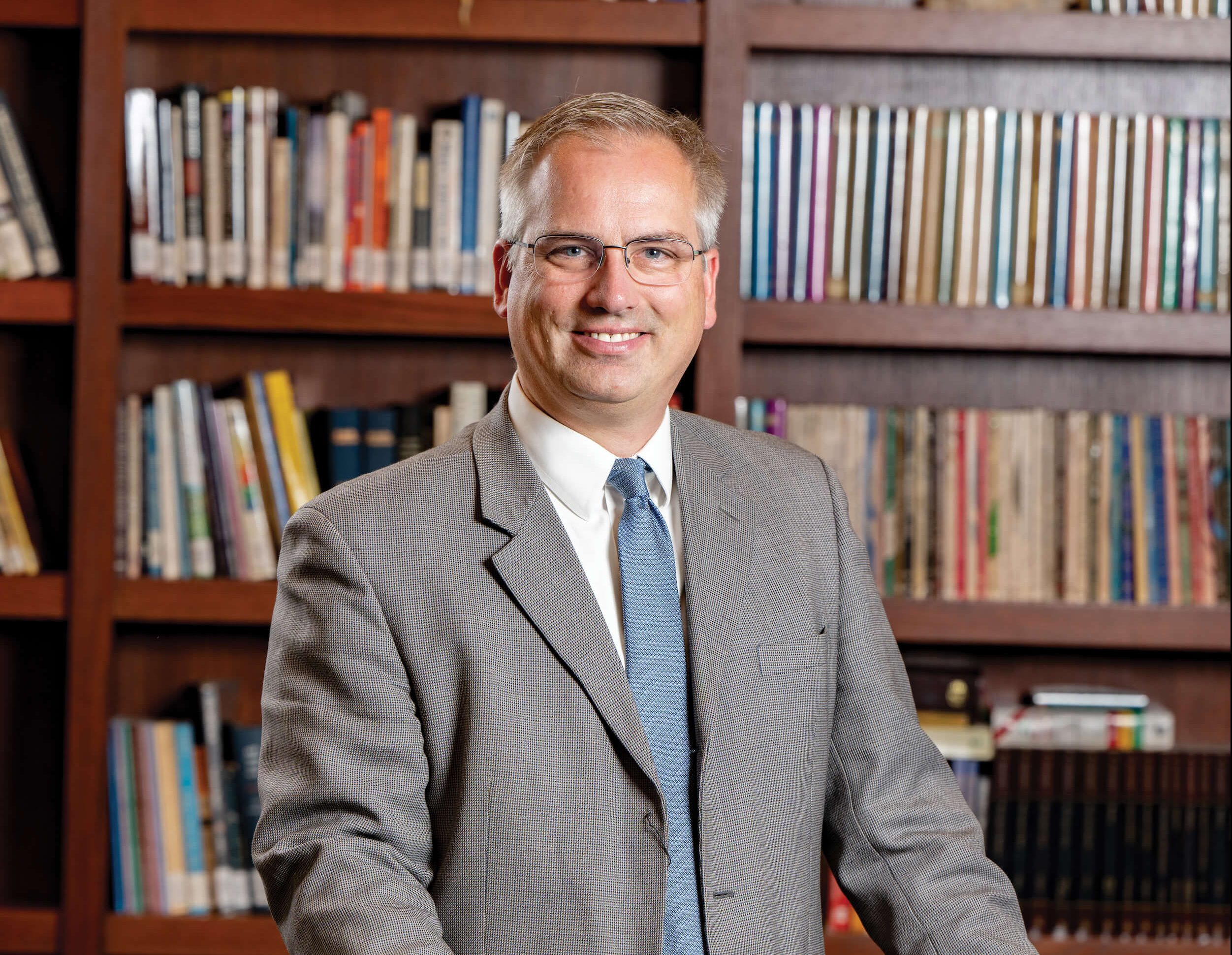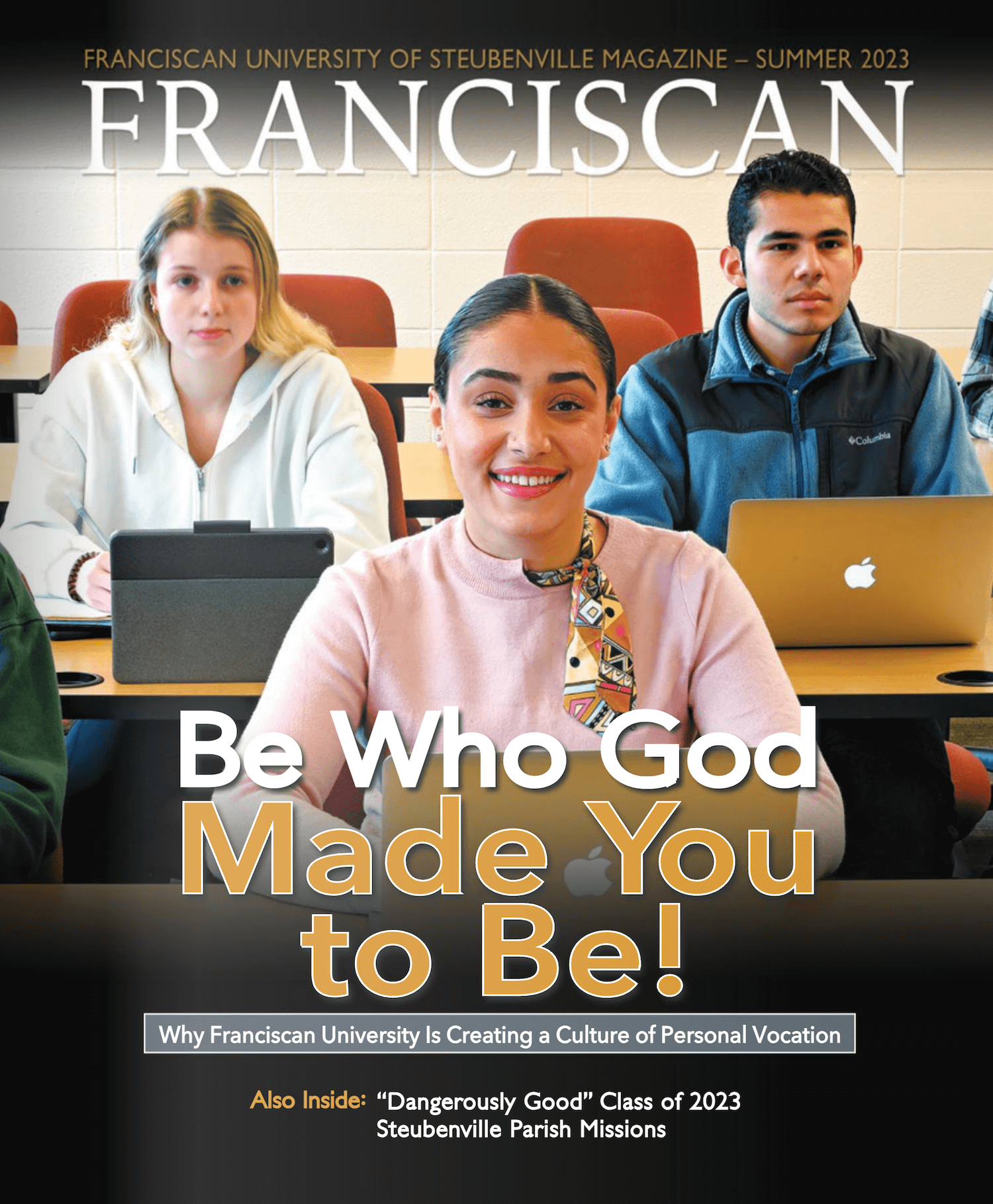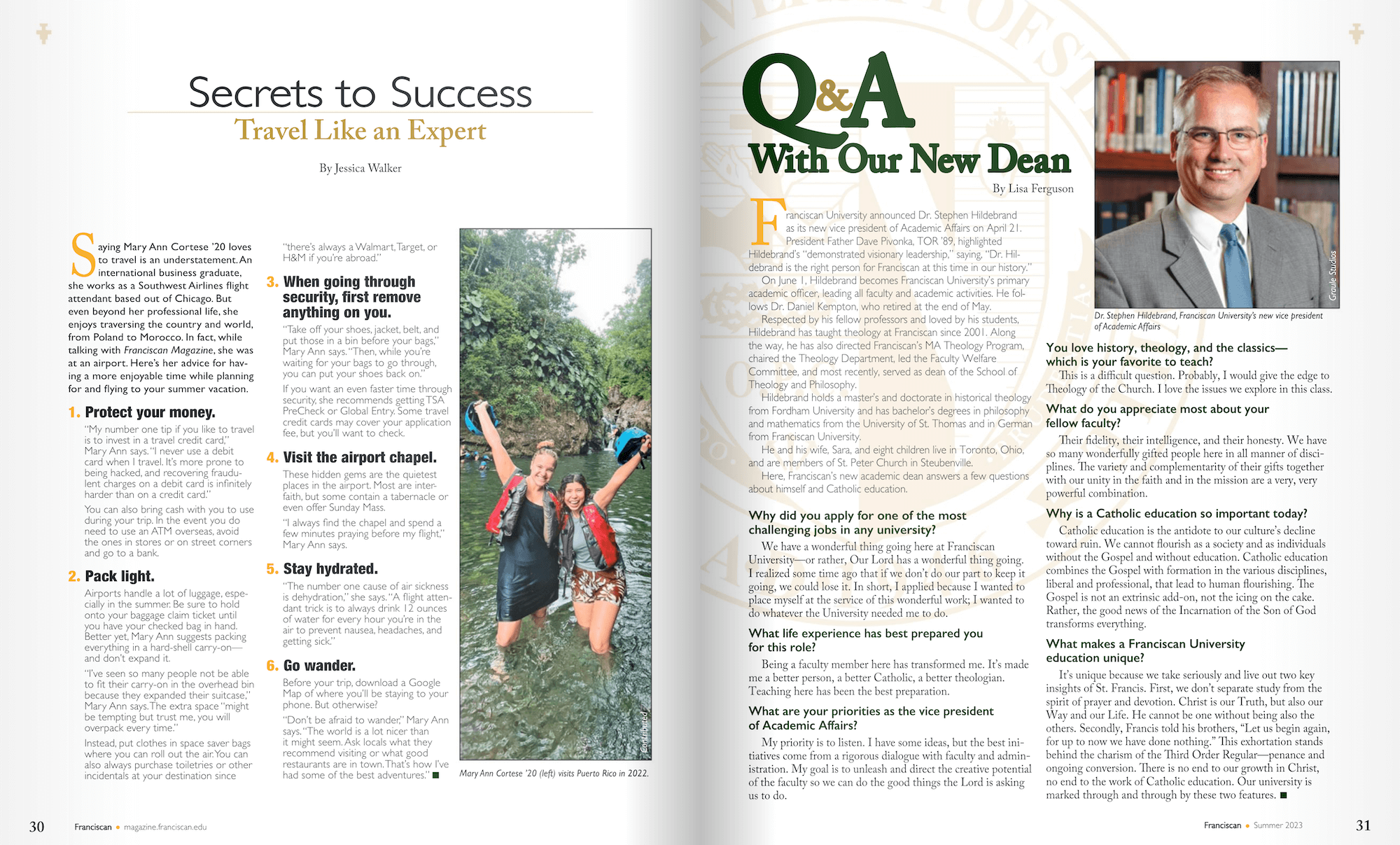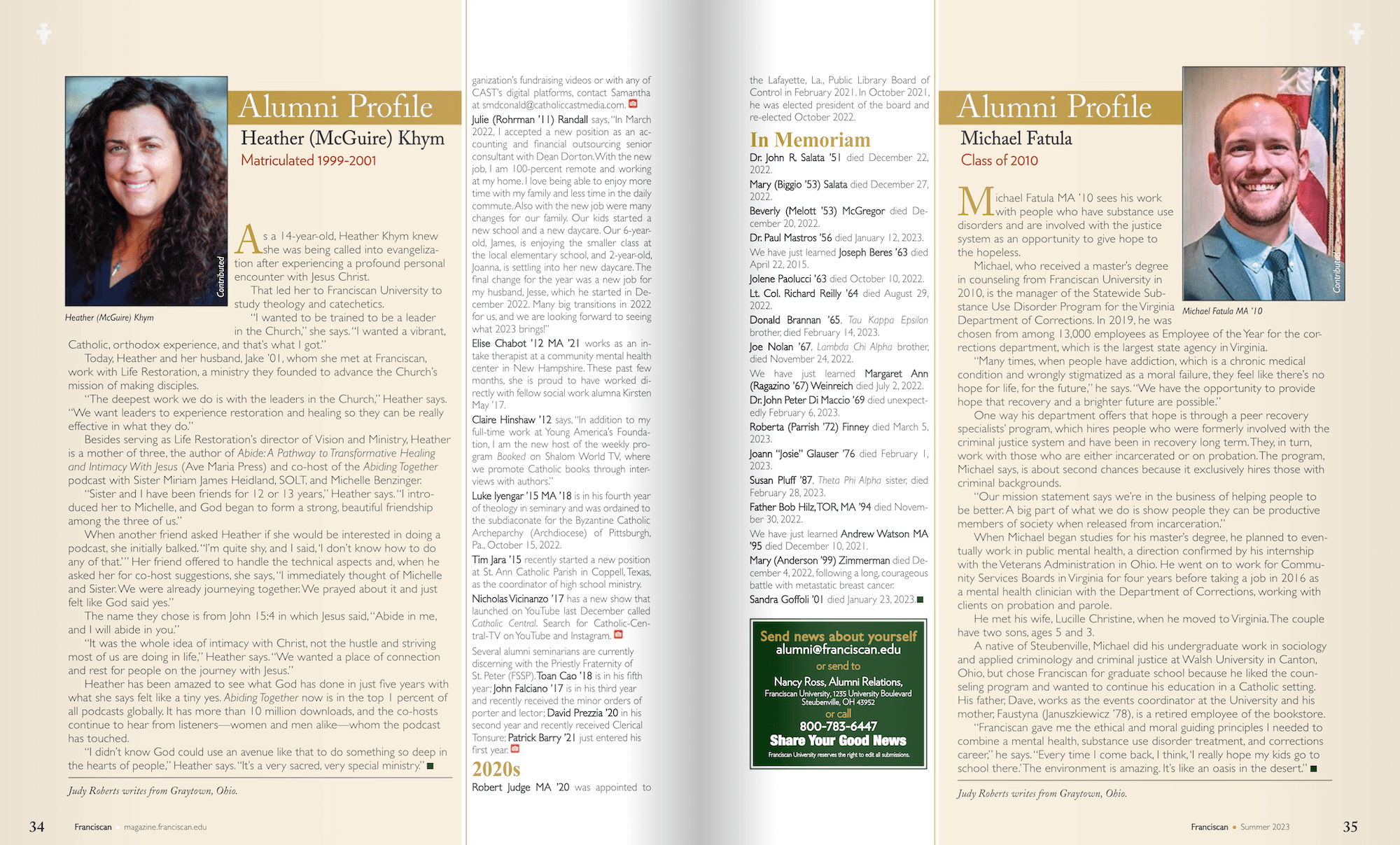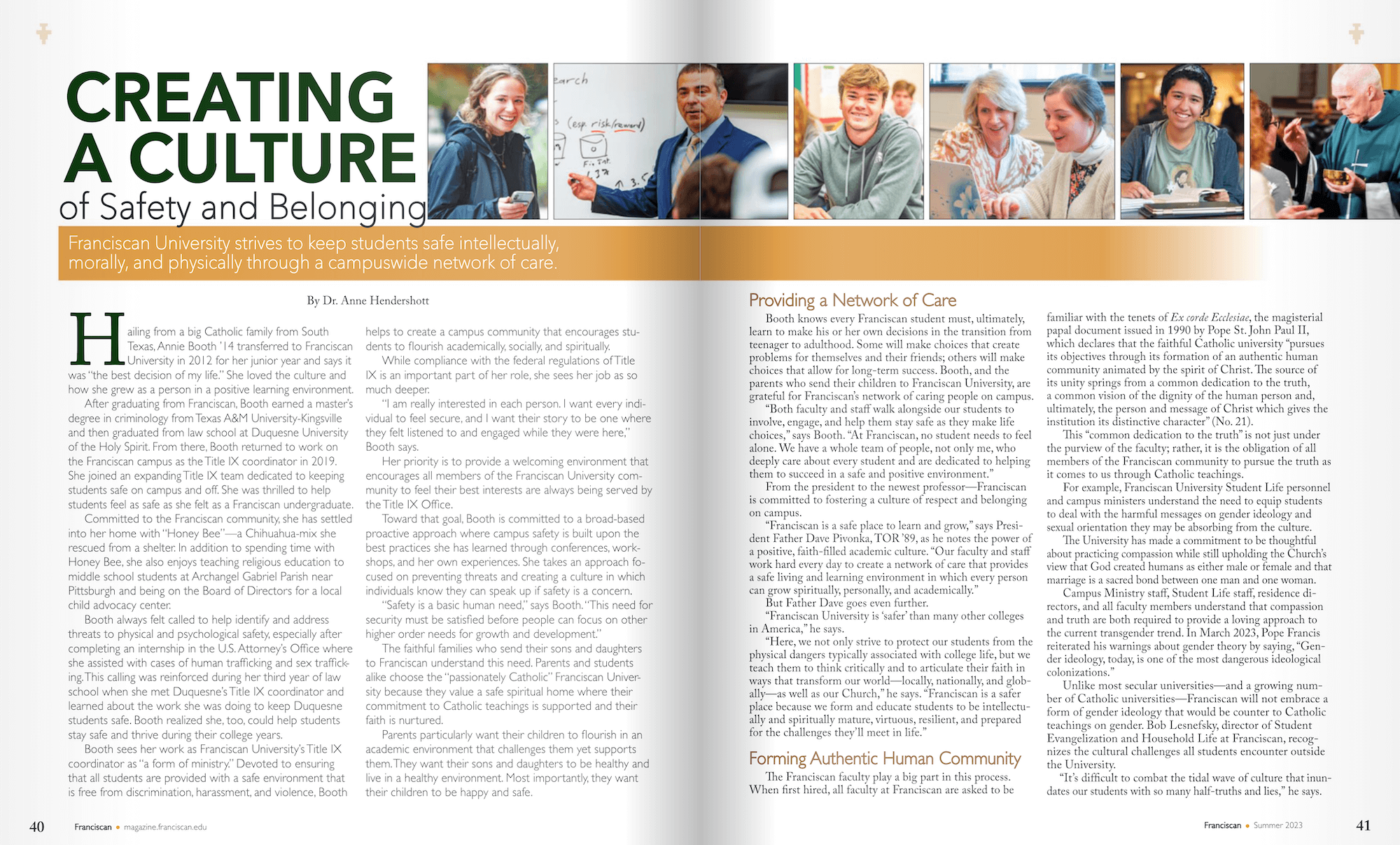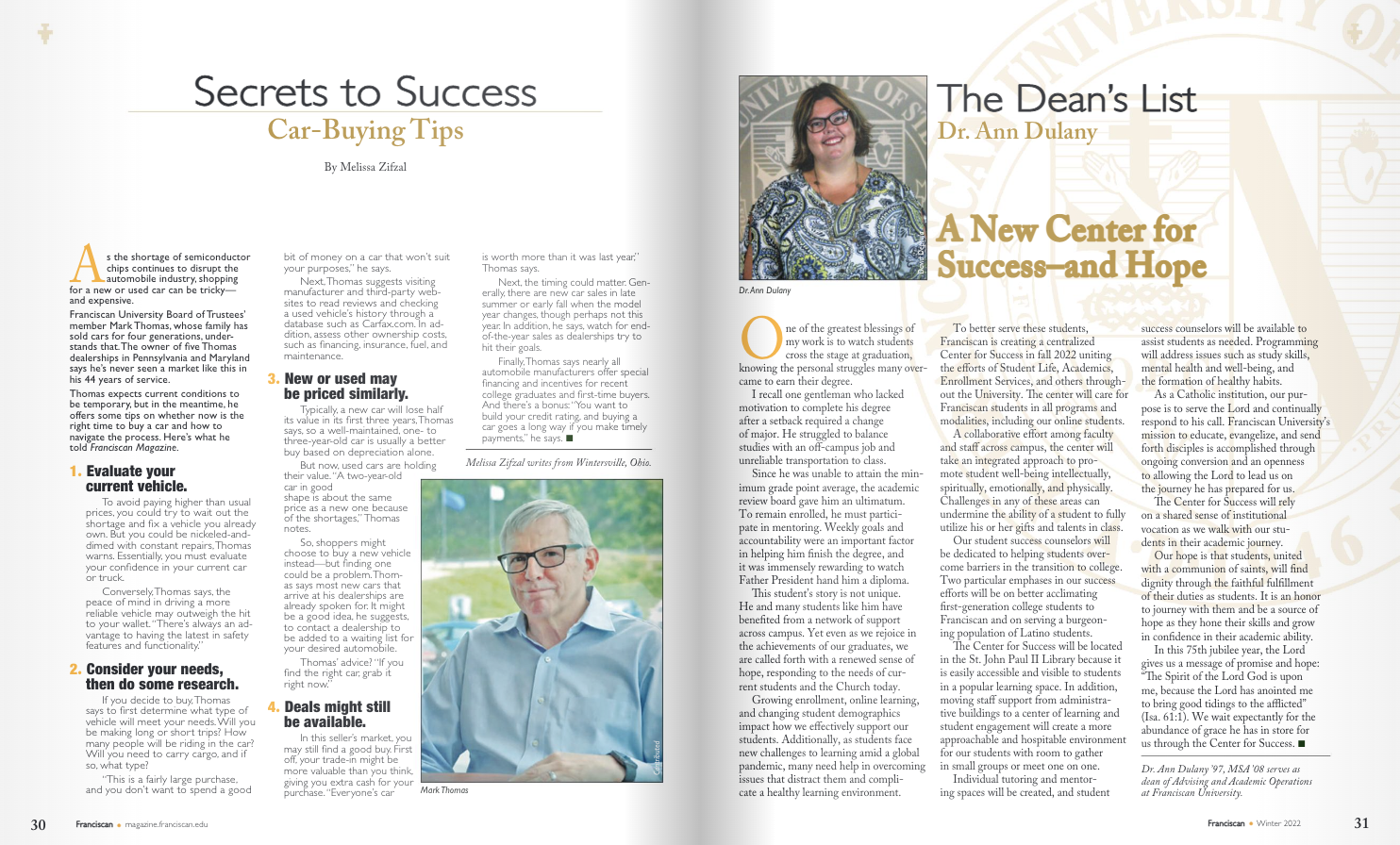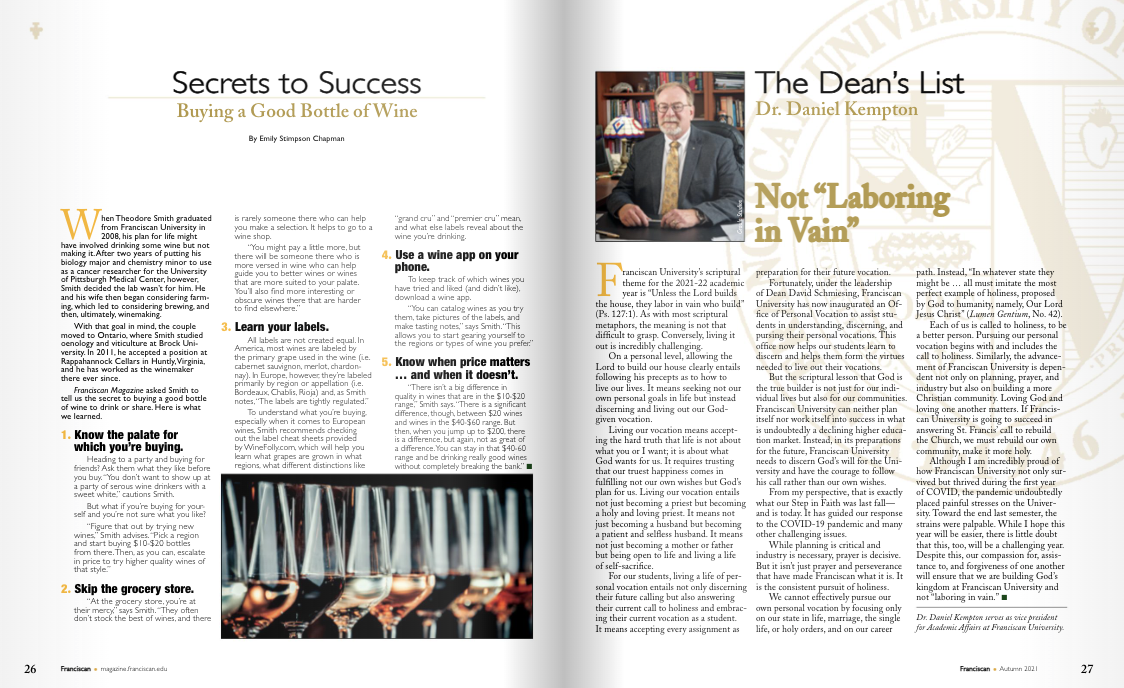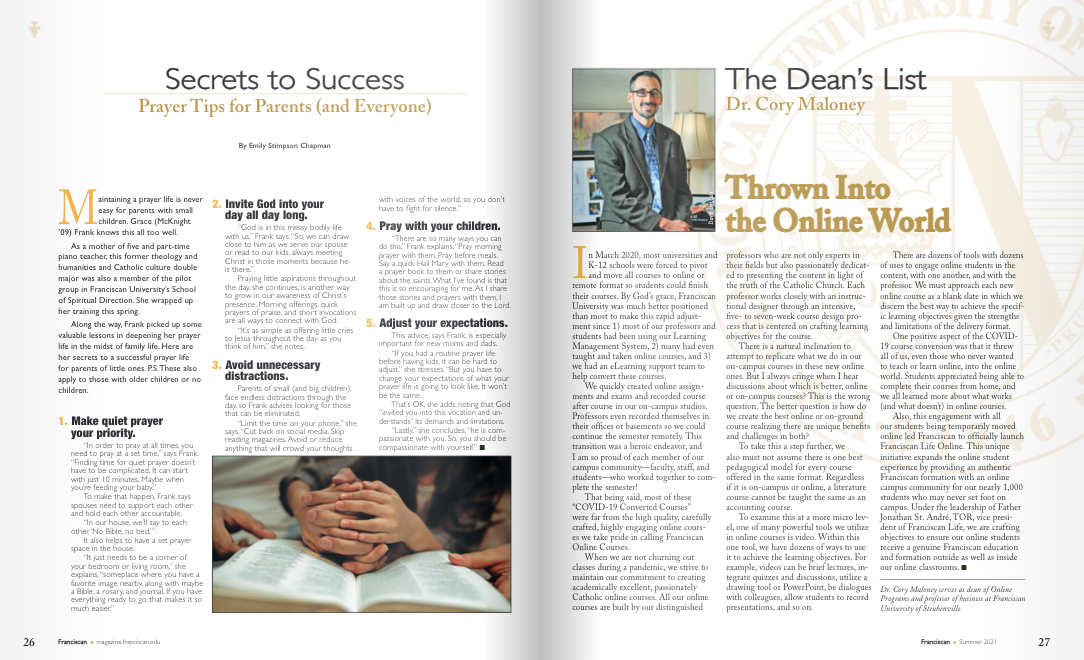Franciscan University announced Dr. Stephen Hildebrand as its new vice president of Academic Affairs on April 21. President Father Dave Pivonka, TOR ’89, highlighted Hildebrand’s “demonstrated visionary leadership,” saying, “Dr. Hildebrand is the right person for Franciscan at this time in our history.”
On June 1, Hildebrand becomes Franciscan University’s primary academic officer, leading all faculty and academic activities. He follows Dr. Daniel Kempton, who retired at the end of May.
Respected by his fellow professors and loved by his students, Hildebrand has taught theology at Franciscan since 2001. Along the way, he has also directed Franciscan’s MA Theology Program, chaired the Theology Department, led the Faculty Welfare Committee, and most recently, served as dean of the School of Theology and Philosophy.
Hildebrand holds a master’s and doctorate in historical theology from Fordham University and has bachelor’s degrees in philosophy and mathematics from the University of St. Thomas and in German from Franciscan University.
He and his wife, Sara, and eight children live in Toronto, Ohio, and are members of St. Peter Church in Steubenville.
Here, Franciscan’s new academic dean answers a few questions about himself and Catholic education.
Why did you apply for one of the most challenging jobs in any university?
We have a wonderful thing going here at Franciscan University—or rather, Our Lord has a wonderful thing going. I realized some time ago that if we don’t do our part to keep it going, we could lose it. In short, I applied because I wanted to place myself at the service of this wonderful work; I wanted to do whatever the University needed me to do.
What life experience has best prepared you for this role?
Being a faculty member here has transformed me. It’s made me a better person, a better Catholic, a better theologian. Teaching here has been the best preparation.
What are your priorities as the vice president of Academic Affairs?
My priority is to listen. I have some ideas, but the best initiatives come from a rigorous dialogue with faculty and administration. My goal is to unleash and direct the creative potential of the faculty so we can do the good things the Lord is asking us to do.
You love history, theology, and the classics— which is your favorite to teach?
This is a difficult question. Probably, I would give the edge to Theology of the Church. I love the issues we explore in this class.
What do you appreciate most about your fellow faculty?
Their fidelity, their intelligence, and their honesty. We have so many wonderfully gifted people here in all manner of disciplines. The variety and complementarity of their gifts together with our unity in the faith and in the mission are a very, very powerful combination.
Why is a Catholic education so important today?
Catholic education is the antidote to our culture’s decline toward ruin. We cannot flourish as a society and as individuals without the Gospel and without education. Catholic education combines the Gospel with formation in the various disciplines, liberal and professional, that lead to human flourishing. The Gospel is not an extrinsic add-on, not the icing on the cake. Rather, the good news of the Incarnation of the Son of God transforms everything.
What makes a Franciscan University education unique?
It’s unique because we take seriously and live out two key insights of St. Francis. First, we don’t separate study from the spirit of prayer and devotion. Christ is our Truth, but also our Way and our Life. He cannot be one without being also the others. Secondly, Francis told his brothers, “Let us begin again, for up to now we have done nothing.” This exhortation stands behind the charism of the Third Order Regular—penance and ongoing conversion. There is no end to our growth in Christ, no end to the work of Catholic education. Our university is marked through and through by these two features.



